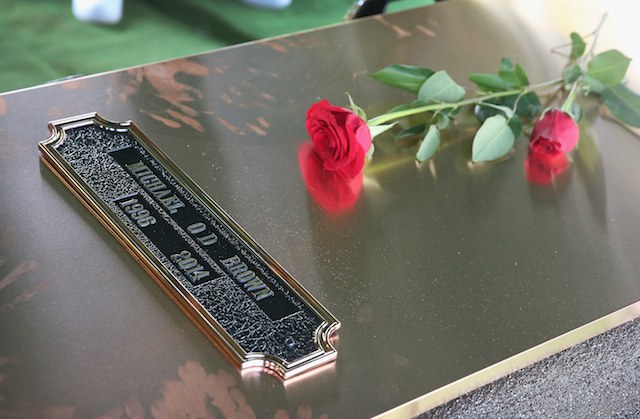Michael Brown was laid to rest today, but much of the day’s conversation was spent responding to New York Times reporter John Elignon’s treatment of Brown in a Sunday article. Eligon’s key passage:
Michael Brown, 18, due to be buried on Monday, was no angel, with public records and interviews with friends and family revealing both problems and promise in his young life. Shortly before his encounter with Officer Wilson, the police say he was caught on a security camera stealing a box of cigars, pushing the clerk of a convenience store into a display case. He lived in a community that had rough patches, and he dabbled in drugs and alcohol. He had taken to rapping in recent months, producing lyrics that were by turns contemplative and vulgar. He got into at least one scuffle with a neighbor.
Those choice phrases reignited a roiling conversation on what exactly a black victim of state violence must be in order to be deserving of sympathy and justice. Who else had the New York Times described as "no angel"? Convicted murderers and rapists, one of the youth responsible for the Columbine shooting, Magic Johnson, Al Capone, and a Nazi field marshal–in other words, "hardened white criminals, or men of color," Vanity Fair pointed out. (A New York Times‘ profile of Officer Darren Wilson, who killed Brown, published the same day as its profile of Brown, detailed financial crimes of Wilson’s mother, and otherwise described Wilson as a, "well-mannered, relatively soft-spoken, even bland person.") Dabbling in smoking and underaged drinking and listening to hip-hop are just about the very definition of adolescence, many pointed out, but in Michael Brown’s case, those details have been used as a kind of weapon against him and those seeking justice for his death.
Black Twitter eviscerated the narrative in its typical sardonic fashion:
also tell them that i love N.W.A. and have unpaid library fines. i'm not an angel by any means #ideservedit
— zoe samudzi (@BabyWasu) August 25, 2014
Incase I'm murdered by a cop, @nytimes should know I take an obscene amount of napkins/serviettes when I go to fastfood placces #ideservedit
— No Angel (@Dandy_Lord) August 25, 2014
In case I'm killed by cop, @nytimes should know my feet briefly touched bottom when getting my swimming merit badge #ideservedit noboyscout
— R.L. Nave (@rlnave) August 25, 2014
Dexter Thomas, writing over at Medium in a story published on Saturday, had a prescient take on the New York Times story:
Maybe what we need is a 5’8, light-skinned, Harvard-bound, star tennis player/violinist/poet that volunteers at the local pet shelter, bakes amazing blueberry muffins, speaks with a Mid-Atlantic accent, has a white name, who has never taken a photo with anything other than a thumbs up and a smile, and just recently published a groundbreaking cure for cancer in Science.
And we need him to die. Someone needs to find this boy, and kill him in public. It’s our only hope.
I’d offer myself, honestly. I would. But I got a D in Calculus once, so I don’t think I qualify. I’m not good enough.
The outcry drew a response from the New York Times‘ public editor Margaret Sullivan. Eligon, a black man himself, told Sullivan of his word choice, "Hindsight is 20/20. I wish I would have changed that."
